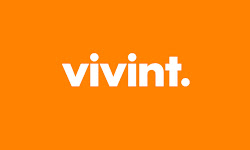Conquest Nutrition Courtesy of Dynamic Nutrition
Conquest Nutrition Basics Courtesy of Mike Kesthely @ Dynamic Nutrition
Here at Conquest Conditioning, we realize that high quality, intense training is only a piece of the puzzle for optimal health & wellness; another HUGE piece is nutrition. CrossFit Coach Mike Kesthely has put together some basic information to help you get started, and also question what you may have heard. This is only the tip of the iceberg, so to speak---grab a coach for more information!
Fitness in 100 Words, by Greg Glassman:
"Eat meat and vegetables, nuts and seeds, some fruit, little starch and no sugar. Keep intake to levels that will support exercise but not body fat."
What Should I Eat?
In plain language, base your diet on garden vegetables, especially greens, lean meats, nuts and seeds, little starch, and no sugar. That’s about as simple as we can get. Many have observed that keeping your grocery cart to the perimeter of the grocery store while avoiding the aisles is a great way to protect your health. Food is perishable. The stuff with long shelf life is all suspect. If you follow these simple guidelines you will benefit from nearly all that can be achieved through nutrition.
The Caveman or Paleolithic Model for Nutrition
Modern diets are ill suited for our genetic composition. Evolution has not kept pace with advances in agriculture and food processing resulting in a plague of health problems for modern man. Coronary heart disease, diabetes, cancer, osteoporosis, obesity and psychological dysfunction have all been scientifically linked to a diet too high in refined or processed carbohydrate. Search “Google” for Paleolithic nutrition, or diet. The return is extensive, compelling, and fascinating. The Caveman model is perfectly consistent with the CrossFit prescription.
General Guidelines:
80% of body composition success is determined by diet. Limit processed carb intake (hence, insulin production), and obtain sufficient protein and fat to fuel and rebuild.
• Protein: Average .7 – 1 gram per pound of lean body mass/day – depending on activity levels (more at times is fine).
• Carbs: 50-100 grams/day (or less) = accelerated fat loss. 100-150 grams/day = effortless weight maintenance. Heavy exercisers can increase carb intake as needed to replace glycogen stores.
• Fat: Enjoy freely but sensibly for balance of caloric needs and high dietary satisfaction levels.
• Eliminate: Sugary foods and beverages, grains (wheat, corn, rice, pasta, breads, cereals, etc.), legumes (soy and other beans), trans and partially hydrogenated fats, high-risk conventional meat and produce, and excess PUFA’s (instead, increase omega-3 oils).
• Moderation: Certain high glycemic fruit, coffee, high-fat dairy products, starchy tuber vegetables, and wild rice.
• Supplements: Multivitamin/mineral formula, probiotics, omega-3 fish oil, vitamin D, and protein powder.
• Herbs, spices and extracts: Offer many health benefits and enhance enjoyment of meals.
• Sensible indulgences: Dark chocolate, moderate alcohol, high-fat treats.
Recommended Websites:
Robb Wolf - Quick start guide and other tools from the author of The Paleo Solution
Mark's Daily Apple - Home of Mark Sisson & The Primal Blueprint
PaNu - Another great "quick-start" guide by Dr. Kurt Harris
Recipes
Please post recipes to the comments section
For specific nutrional consultations & nutrition plans contact Mike at mike@dynamicnutrition.ca and visit his site by clicking on the logo link. Read more...







